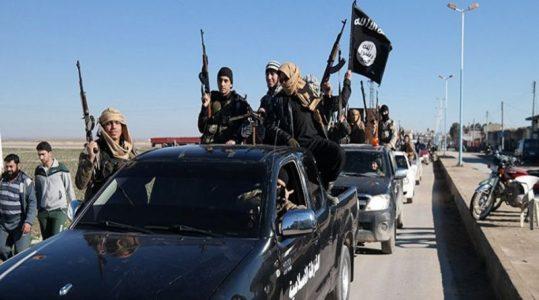
Iraqi scientist reveals how he helped ISIS terrorist group to make chemical weapons
A 52-year-old Iraqi geologist claims to have spearheaded the manufacture of chemical weapons for ISIS over a period of 15 months, The Washington Post reported.
A few weeks into the seizure of Mosul, the second largest city in Iraq, by ISIS, Suleiman al-Afari, a scientist with the country’s Ministry of Industry and Minerals, was tapped by the terrorist group to help them develop their chemical weapons programme, The Washington Post reported.
Although al-Afari, as a geologist, had little knowledge about the job, he accepted the offer and was in charge of supervising the manufacture of lethal toxins, including sulfur mustard.
During his 45-minute interview with WaPo’s Joby Warrick at Irbil’s Counterterrorism Department, al-Afari said that he didn’t regret his decision, reasoning that he wanted to keep a government job.
“They had become the government, and we now worked for them. We wanted to work so we could get paid. They didn’t force anyone. I was afraid that I would lose my job. Government jobs are hard to get, and it was important to hang on to it”, he told the newspaper.
Al-Afari is among the few known people participating in ISIS’s chemical weapons development programme to be captured alive. He was also charged with organising a supply chain for mustard gas, and outfitting a small cluster of labs.
“It was important (for ISIS) to make something strong so that they could terrify. It was more about creating horror and affecting the psychology and the morale of troops fighting them. I don’t believe the quality of the weapons was ever at such a dangerous level”.
Speaking of the facility where he used to work, the scientist said it was “very primitive and simple”.
“There were uneducated people there who had none of the needed skills. I don’t think anything was being done properly”, al-Afari said, adding that it was located in a former auto repair shop.
Although the chemical weapons lab was eliminated in Iraq, The Washington Post cited Iraqi officials who assumed that ISIS could have moved some equipment and chemicals to Syria in 2016.
ISIS has on several occasions used chemical weapons against civilians and Iraqi, Syrian and US-led coalition military personnel, presumably using chlorine gas and sulfur mustard.
Source: Sputnik





